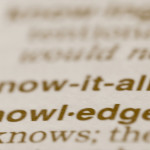When education is discussed, it can be normatively organized in three different “categories”:
– FORMAL
– NON-FORMAL
– INFORMAL LEARNING
 FORMAL TRAINING
FORMAL TRAINING
Based on formally defined practices, with the requirement of legal accreditation in Italy (MIUR, Const. art. 33), leading to a recognized diploma or qualification. This training takes place throughout the entire period of schooling, from primary school to university, and includes a variety of programs and institutes specializing in technical and professional training.

NON-FORMAL TRAINING
The term “non-formal” applies to any educational activity organized outside the formal system and conducted in the context of organizations or groups of the civil society, in associations, etc.
This is aimed at a category of clearly identifiable users and sets specific objectives in the field of learning, but without leading to the issuing of degrees or recognized qualifications.
The age of information (Castells, 1996) in which we live takes us into a new world: a world after the modern, in which on the one hand there is a new poverty, that of those who have no wealth or prospects, and on the other there is a new source of wealth: knowledge. In this world of new and particular characteristics, the question that arises is: in what way can a practice of diffusion, sharing and development of knowledge reduce poverty and sustain individual growth? What could and should be the structured form of this sharing? How can we construct the trust needed to share and give value to this necessary kind of training? (De Biase, 2013)
To understand this, we have to analyze the roots behind this change. It is based on a profound alternation of the subject, who has to adapt to a situation of education that continues through the entire life span, to approach the new world in a constructive and active way. This necessitates, of course, a new category of training programs that while being part of non-formal education, must necessarily take on high quality/excellence in their design and implementation; what is at stake, in fact, is the quality of the post-industrial and/or informational subject itself.
Though recognized by the European Union on a par with formal education, as a tool for achievement of the 8 Key Skills, non-formal education does not require the same accreditation as the formal system. The world of education can thus be joined by an entire range of disciplinary and interdisciplinary courses based on forms of expertise, knowledge and thought that do not, precisely thanks to this opening, require legal recognition (MIUR, Const. Art. 33).

INFORMAL TRAINING
This is a process not connected to specific times or places in which each individual acquires – also in an unconscious, unintentional way – habits, values, abilities and knowledge from everyday experience and from the educational resources and influences in their environment: from the family to the neighborhood, work to play, the market, the library, the world of art and entertainment, the mass media.
Informal Education makes use of the environmental context as a training tool. Instruments like projects of Research and Development, exhibitions and displays, the writing of stories, the creation of films and media works in general, and related publishing initiatives in print or via web, focus different contributions on the comprehension of process relationships between the environmental sphere and the individual socio-economic and cultural sphere.